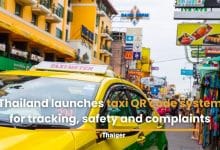Hong Kong hotel bills pile up: Tourism takes a hit amid dollar drama

As Hong Kong’s hospitality sector braces for the new year, a perfect storm of challenges threatens to sour the city’s tourist appeal. With a new lodging tax set to dent visitors’ wallets and geopolitical tensions on the rise, thanks to Donald Trump’s upcoming presidency, the city’s once-thriving tourist industry could face an uphill battle.
From January, a 3% hotel guest tax hits just as Trump’s tenure promises turbulence in US-China trade and tourism relations. Hong Kong’s reliance on Chinese tourists is yielding fewer returns, with mainland visitors tightening their purse strings amid an economic lull post-Covid-19.
Their dwindling stays, coupled with a weak national currency, have sent alarm bells ringing, said William Cheng, Shun Ho Group Chairman.
“External factors are definitely worrying, such as the weakening Chinese currency, the strong Hong Kong dollar, the Trump trade wars and tariff threats. Operating costs are equally worrying and will make the hotel industry suffer.”
Shun Ho Group, managing seven hotels and 3,000 rooms, including the Best Western in Causeway Bay and Ramada Hong Kong Harbour View, are feeling the squeeze. Hong Kong’s charm is slipping, down to 21st in Euromonitor International’s tourist destination ranking, overtaken by regional rivals like Singapore, now sitting pretty in the top 10, said Vishnu Vardhan, research manager at Euromonitor.
“Hong Kong has performed comparatively lower on the tourism performance pillar which has impacted the overall city ranking in 2024. China accounts for close to 70% of inbound travellers to Hong Kong and the struggling Chinese economy has further added to the woes.”
Restaurant closures
Despite a 37% leap to 36.7 million visitors from January to October, numbers hover at just 70% of 2018 figures. The retail landscape’s gloomy vibe, plagued by store and restaurant closures, isn’t helping matters either, said Cheng.
“The mainland Chinese spending power is noticeably weaker this year. With the convenience of high-speed trains, they do not book early but choose to book the cheapest hotel at the last minute, causing a price war among hotels and significantly reducing revenue.”
Mainland tourists comprised over three-quarters of arrivals, yet their spending has slumped by 12% from 2023 levels. Long-haul visitors spent more, between HK$6,100 and HK$10,500 per person, but their increase isn’t enough to reignite the tourism flame.
Hotel occupancy averaged 84% for the first ten months, lower compared to 91% in 2018, while average room rates dipped 10-15% from last year, said Shaman Chellaram, senior director at Colliers.
“Challenges are likely to persist in terms of labour shortages and reduced non-room revenue, although there has been a recent pick-up in the latter for some hotels.”
Despite the headwinds, Shun Ho Group boasts a 95% occupancy rate, though profits are hit by rising costs, added Cheng.
“Filling up hotel rooms was taxing during low seasons and even tougher during peak seasons at normal rates.”
As new contenders like the five-star Hopewell Hotel in Wan Chai gear up to open, Hong Kong’s hospitality landscape braces for a fresh wave amidst challenging currents, said Chellaram of Colliers
“The opening of new hotels such as the Dorsett Kai Tak, Hopewell Hotel and potentially The Kimpton will bring a new wave of supply to different areas of Hong Kong, providing new experiences to incoming visitors.”
What Other Media Are Saying
- South China Morning Post highlights concerns for Hong Kong’s hotel industry amid a new lodging tax and geopolitical tensions, predicting further declines in tourism and operational challenges due to external economic factors. (read more)
- The Diplomat explores Hong Kong’s decline, attributing it to the loss of geopolitical neutrality amid escalating China-US tensions, with significant implications for its freedoms, autonomy, and financial status. (read more)
- Bangkok Post highlights Hong Kong’s hotel industry facing challenges from a new lodging tax and geopolitical tensions, with diminishing appeal due to reduced mainland Chinese spending and increased competition. (read more)
Frequently Asked Questions
Here are some common questions asked about this news.
Why is Hong Kong’s hospitality sector facing significant challenges now?
New taxes, geopolitical tensions, and a weakened Chinese economy are straining the sector.
How might Trump’s presidency impact Hong Kong’s tourism industry?
Potential trade tensions could reduce Chinese tourist numbers and spending.
What if Hong Kong could attract more high-spending international visitors?
It could offset the decline in spending from mainland visitors and bolster the economy.
Why has Hong Kong’s appeal as a tourist destination diminished?
Increased competition, economic challenges, and changing travel patterns contribute to its decline.
How could new hotel openings affect Hong Kong’s hospitality industry?
They may increase competition but also offer diverse experiences to attract visitors.
Latest Thailand News
Follow The Thaiger on Google News:


























